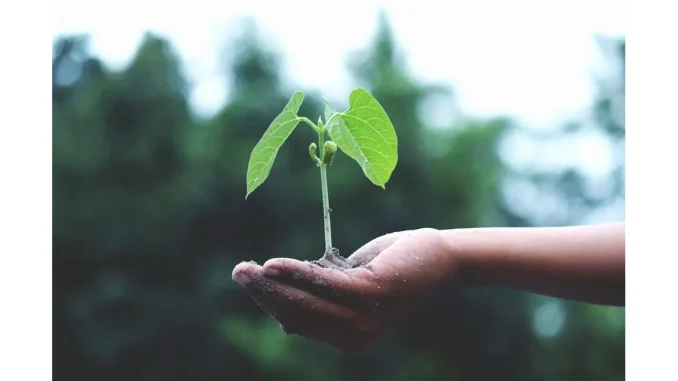
In the dynamic realm of sustainable construction, the Level(s) online conference emerges as a seminal event, heralding innovation and progress. This conference offers an invaluable opportunity to delve into the capabilities of the Level(s) framework in evaluating the environmental performance of buildings. By integrating principles of the circular economy from initial design through to end-of-life, Level(s) aims to revolutionise the construction sector and nurture a symbiotic relationship between humanity and the environment.
Central to this transformative initiative is the Level(s) framework, a robust and adaptable tool providing a comprehensive overview and practical applications via its eLearning course. This framework serves as a catalyst for embedding sustainable practices across diverse work environments. The Level(s) Calculation and Assessment Tool (CAT) further bolsters sustainability performance assessments by meticulously appraising key indicators to optimise environmental impact. This ensures that sustainability transcends being a mere theoretical concept, becoming a tangible practice ingrained in every stage of a building’s lifecycle.
As sustainability paradigms evolve, companies are encouraged to align their disclosures with regulatory taxonomies, adhering to specific deadlines contingent on their size and directives. This alignment enhances transparency and accountability in environmental performance assessments, propelling the industry towards a sustainable future. The adaptability of the Level(s) framework is exemplified by its integration with assessment methodologies such as LEED, BREEAM, and life-cycle costing, ensuring a holistic approach to sustainability. This comprehensive perspective reinforces that sustainability is not just a fleeting trend but a concrete reality embedded in every phase of a building’s lifecycle.
A particularly compelling aspect of the Level(s) framework is its synergy with the New European Bauhaus, a visionary initiative advocating for sustainable living, inclusivity, and aesthetics. By embedding Level(s) principles into their projects, companies can actively contribute to this transformative movement towards a greener and more equitable future. The New European Bauhaus aspires to reimagine Europe based on principles of harmonious coexistence between people and the planet, resonating deeply with the ethos of the Level(s) framework.
Greenlab, a pioneering entity in sustainability reporting, has wholeheartedly adopted the Level(s) methodology in its construction ventures. This commitment to promoting sustainable practices at the grassroots level is evident in Greenlab’s incorporation of the Level(s) framework into both internal staff training and external conferences. By doing so, Greenlab extends its influence and disseminates the benefits of sustainable practices to a broader audience. This grassroots strategy ensures that sustainability principles are deeply rooted within the industry, cultivating a culture of environmental stewardship.
Early involvement and leadership commitment are crucial for successfully embracing Level(s) and embedding sustainability practices into the core operations of the real estate sector. The Level(s) framework lays the groundwork for sustained improvements that go beyond mere cost considerations, positioning sustainability as a long-term investment for present and future generations. This forward-thinking approach underscores the necessity of viewing sustainability not as an expense but as a strategic asset that ensures long-term economic viability and resilience.
In the financial sector, sustainable financing aligned with Level(s) metrics emerges as a strategic advantage. This approach paves the way for more environmentally conscious and socially responsible investments. By championing environmental responsibility, sustainable financing ensures long-term economic viability and resilience. Alignment with Level(s) metrics exemplifies a commitment to fostering a circular economy and combating climate change, highlighting the importance of integrating sustainability into financial strategies.
The Level(s) Newsletter Quiz provides an engaging and interactive means for professionals to test their knowledge of the environmental impact of buildings. Drawing insights from reputable sources such as the World Green Building Council, Eurostat, and the Renovation Wave Communication, the quiz serves as an educational tool that empowers professionals to stay informed on key sustainability issues. Subscribing to the Level(s) newsletter grants access to timely updates on sustainability and environmental performance in buildings, ensuring that professionals remain at the cutting edge of industry advancements.
Recent amendments to the Energy Efficiency Directive (EED) underscore the importance of considering a lifecycle perspective when procuring public buildings. This alignment with the ‘energy efficiency first’ principle prioritises energy efficiency in policy and investment decisions, reinforcing the significance of sustainable practices. The Taxonomy Regulation and Climate Delegated Act further establish stringent conditions for economic activities to qualify as environmentally sustainable, emphasising the necessity to combat climate change and foster a circular economy.
The Level(s) framework epitomises a transformative approach to building sustainability, benefiting the environment, enhancing occupant quality of life, and promoting economic resilience. By adopting Level(s) principles and integrating them into industry practices, companies and professionals can pave the way for a more sustainable and prosperous future. The evolving Level(s) ecosystem continues to offer myriad opportunities for innovation, growth, and lasting impact in sustainable building practices. As we progress, the commitment to sustainability embodied by Level(s) will undoubtedly play a pivotal role in shaping a greener, more sustainable world.


Be the first to comment